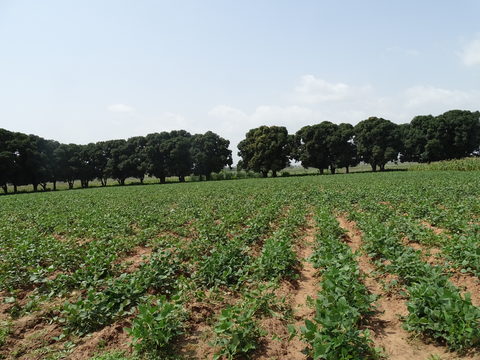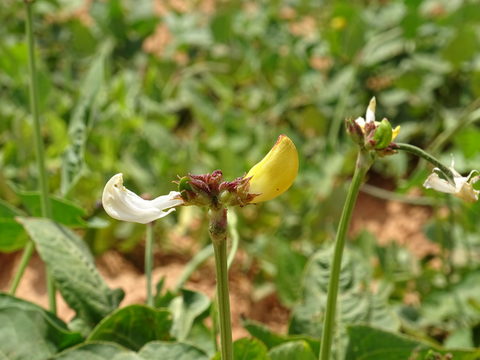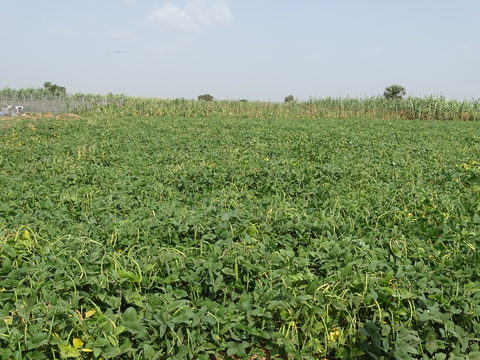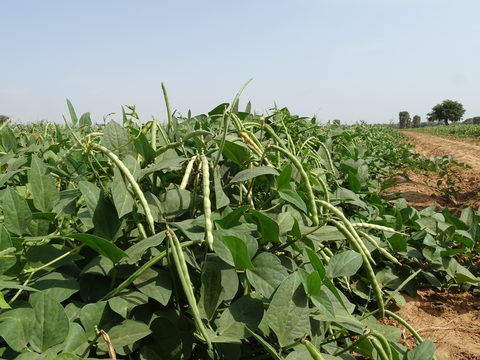Improving the crop Nigeria calls ‘farmer’s meat’
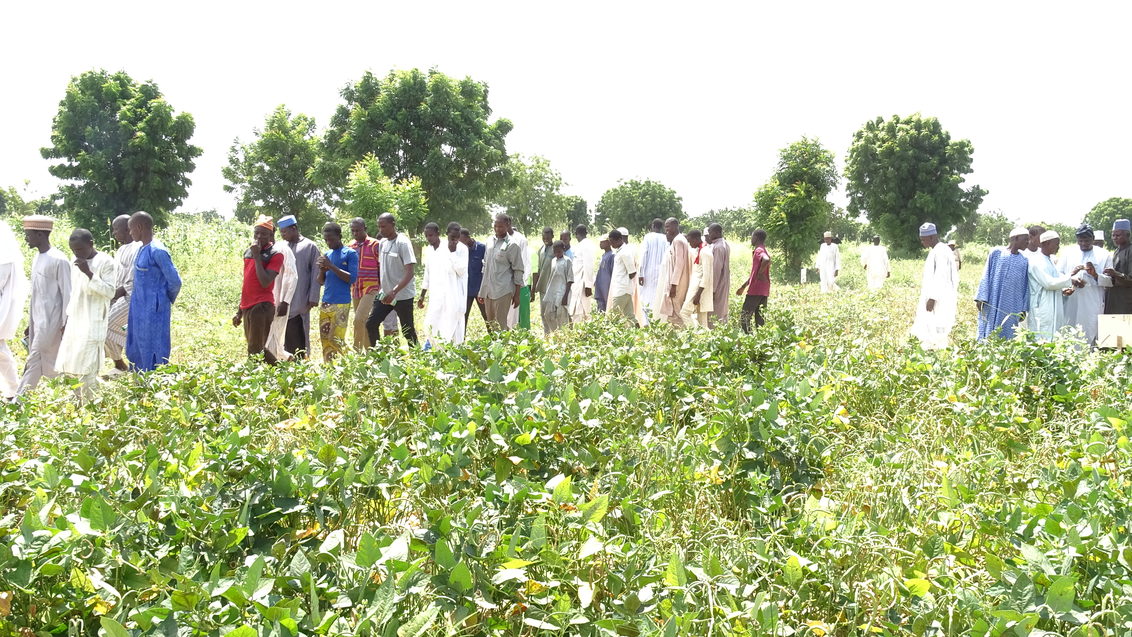
Our Foundation recently brought together Nigerian farmers and other stakeholders for a cowpea Field Day. The two-day event enabled participants to see new varieties emerging from the AVISA* program. With a clear favorite apparent, the task is now to ensure seed company production and smallholder access.
“Cowpea is an important grain legume in Nigeria”, explains our local Project Coordinator Isaiah Gabriel. “People here often call it ‘the farmer’s meat’, because it’s the key staple crop, and smallholders can’t afford real meat very often.” About one-quarter of cowpea is protein. Popular dishes include porridge, fried akara cakes and steamed moi moi pudding. Cowpea goes well with yam, potatoes, rice and pasta.
As Isaiah points out, cowpea is also a good crop agronomically. Rhizobia in its root nodules fix nitrogen in the soil. The plants are well suited to mixed cropping with maize or sorghum. However, smallholders still achieve considerably lower yields than they could. “New varieties and improved agronomic practices will make farmers here much more productive”, he emphasizes. “That’s what our Field Day was all about.”
The main new variety in focus was SAMPEA 14. “There are several reasons why smallholders consider it the best of the new offers”, says our AVISA coordinator Nathalie Vignaux. “It tastes good and beats conventional varieties both on pod size and resistance to the parasitic weed Striga. Those features contribute to higher yields. SAMPEA 14 also thrives under a range of growing conditions and produces plenty of green biomass which farmers feed to their animals.”
The Field Day attracted a wide range of participants. More than 150 small-scale farmers trying to earn a decent living despite the COVID-19 pandemic were joined by seed company representatives, Ministry of Agriculture officials, scientists and other stakeholders.
A key speaker was Professor Lucky Omoigui, a Seed Systems Expert at the International Institute of Tropical Agriculture (IITA). He described AVISA’s efforts to ensure that farmers get better yields. IITA has run a series of programs on tropical legumes; AVISA is now consolidating the gains from this earlier work and creating vital market links. Professor Omoigui led Field Day visitors to see the new varieties’ performance compared to current local options. He called on the farmers to “embrace quality seed for bumper harvests”, reminding everybody present that "seed is the foundation of food security”.
Terryima Iorlamen from the University of Agriculture Makurdi in Benue State also addressed participants. His university has the task of providing breeder and foundation seed to local companies for multiplication and sale. Iorlamen particularly encouraged women and young people to engage with AVISA and try new varieties.
The Syngenta Foundation is responsible for linking the companies up with farmers. “Ideally, I’d like to see companies come frequently on local market days to ensure smallholders’ easy access to new varieties”, says Isaiah Gabriel.
*AVISA = Accelerated Varietal Improvement and Seed Delivery of Legumes and Cereals in Africa

